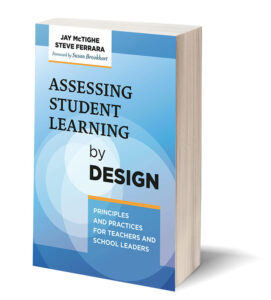
Kristina J. Doubet, Ph.D. has been an educator for 30 years. She is an award-winning, full, tenured professor in the College of Education at James Madison University where she works with preservice teachers to prepare them for careers in the classroom while partnering with experienced teachers to help them improve their practice.
Kristina’s ten years teaching in her own classroom and twenty years as an instructional coach and consultant in others’ classrooms help her weave practicality into everything she does. She has partnered with over 100 schools, districts, and organizations – both in the United States and abroad – to implement initiatives in differentiated instruction, curriculum design (UBD), digital learning, and performance-based assessment.
Kristina holds both an M.Ed. and a Ph.D. – both in Curriculum and Instruction – from the University of Virginia. She received her B.A. in English and Communications from Eastern Illinois University.
In addition to her numerous journal articles, book chapters, and professional digital pieces, she has published five books: 1) Designing Authentic Performance Tasks and Projects (McTighe, Doubet & Carbaugh, ASCD, 2020); 2) Differentiation in the Elementary Grades (Doubet & Hockett, ASCD, 2017); 3) The Differentiated Flipped Classroom (Carbaugh & Doubet, Corwin, 2016), 4) Differentiation in Middle and High School (Doubet & Hockett, ASCD, 2015), and 5) Smart in the Middle (Tomlinson & Doubet, NMSA, 2006).
Most recently she has published a QRG, Principles and Practices of Effective Blended Learning (Doubet & Carbaugh, 2020), and is set to publish an ASCD book and QRG entitled The Flexibly Grouped Classroom in early 2022. Kristina’s research interests include standards-based grading, integrated ELA instruction, and innovative instruction for English Learners. Her website is www.KristinaDoubet.com and her Twitter is @kjdoubet.
Areas of Expertise:
- Curriculum design using the Understanding by Design® framework
- Performance assessment and Project-Based Learning
- Rubric design
- Formative assessment and feedback
- Differentiated instruction
- Digital teaching tools/Blended learning
- Flexible grouping
- English Language Learners
- Models of co-teaching
